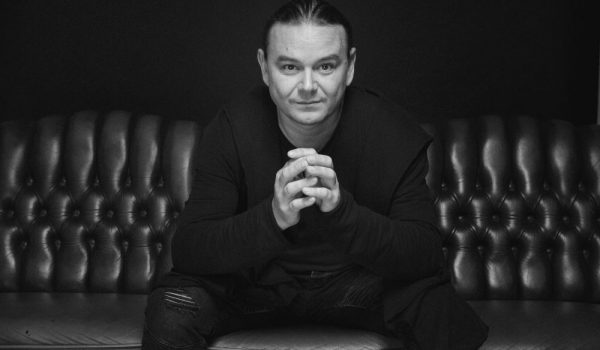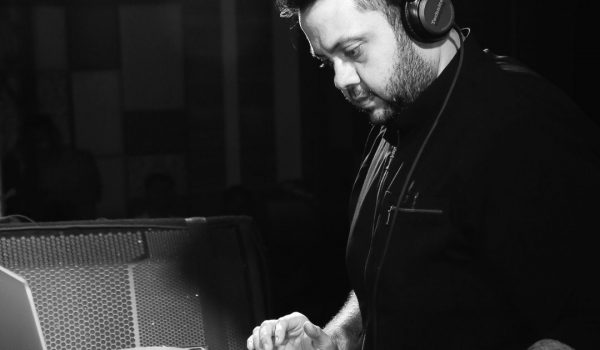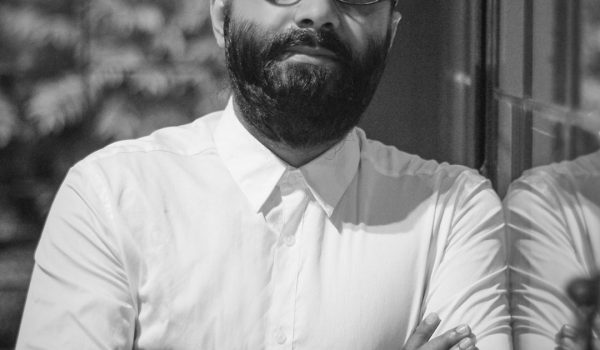Based out of Bangalore (India), Greg Tomaz is an artist whose flair for deep progressive & melodic techno urged him to bring out music that leaves a definite and lasting impression. His production can rightly be described as deep with a definite share of underground. Simple yet consuming soundscapes is what he delivers with his productions and this earned him appearances on labels such as Juicebox Music, Particles, Stellar Fountain, Soundteller, One of A Kind, 3rd Avenue, Stripped Digital, Mistique Digital and many others. As a DJ, his sets are uniquely crafted with tracks handpicked to voice his love for quality with distinctness.
Known for his aesthetic sense of music, Greg had the pleasure to share the console with some of the very best in the field like Nick Warren, Cid Inc, Cubicolor, Roger Martinez, Dousk, Kasper Koman, Eli Nissan, Tim Engelhardt, Budakid, Darin Epsilon, Brian Cid, Ziger, Victor Ruiz and many more. His work has found airplay on Frisky Radio, Digitally Imported and Afterhours FM, with Frisky Radio spotlighting him as their ‘Artist of the week’.
With his unceasing thirst for better music, he is one artist whose work is a musical revelation in itself.
Q&A with Greg Tomaz
What does DJing mean to you?
For me, DJing is more than just a technical skill; it’s a form of self-expression and a way to connect with others on a deep level. When I’m behind the decks, I feel like I’m able to tap into something larger than myself and share my love of music with the world.
How and why did you become a DJ?
My journey into the world of DJing began in Kochi, Kerala. Inspired by the infectious energy of Hip Hop and Turntablists, I embarked on a path to create music and share it with the world. My musical horizons expanded further when I discovered Progressive House and Techno. These genres opened up new avenues for sonic exploration, fueling my passion to create music that transcended boundaries.
When did you start DJing and what was your first big DJ moment?
I started DJing around 2005-2006. My first big break in Kochi was securing a residency at a club that dared to defy the mainstream, championing House music and Techno amidst a sea of Bollywood and pop music.
What and who were your early passions and influences?
Moshic, Hernan Cattaneo, Sasha and Nick Warren.
What are some of the main challenges for a Dj in the current scenario according to you?
In today’s saturated music landscape, one of the biggest challenges artists face is breaking through the noise and getting their music heard by the masses. It’s no longer enough to simply create great music; artists must also be savvy marketers and content creators, constantly engaging with their audience and promoting their work. This requires a significant investment of time, energy, and resources, which can be daunting for independent artists without the backing of a major label or agency.
How do you prep for a set?
My aim is to embark on a sonic journey with my audience. While I do some preliminary research on the venue, the crowd, and the lineup, I prefer to let the atmosphere and energy of the moment guide me.
What’s the difference for you in playing at a gig and playing on the Radio?
The energy of a live performance is undeniable. As a DJ, I thrive on the palpable excitement of the crowd, feeding off their energy and crafting a set that resonates with their collective mood. It’s a constant dialogue, a call and response that drives the night forward. I’m not just playing music; I’m curating an experience, a shared journey through sound. In that sense, every gig is an opportunity to experiment and push boundaries, to introduce the crowd to new sounds and styles they might not have encountered before. It’s a risk, but it’s also a reward, seeing the surprise and delight on their faces as they discover something new.
In contrast, crafting a mix for the radio is a more introspective process. I’m not reacting to the immediate feedback of a crowd; instead, I’m creating a sonic narrative that unfolds over time. It’s a chance to showcase my musical sensibilities, to curate a selection of tracks that reflect my unique perspective and taste. There’s a certain freedom in this, an opportunity to explore the nuances of different genres and styles without the pressure of the dance floor.
What is one track that never gets old for you no matter how many times you hear it?
Robert Miles – Children
What have you learned since you started out as a DJ?
DJing is a dynamic and ever-evolving art form, and throughout my journey, I’ve learned the importance of continuous learning and adaptation. The music landscape has transformed since I first started, with genres, technologies, and creative processes constantly evolving. The emergence of AI-powered music creation tools has introduced new possibilities for sonic exploration, and I’ve embraced these advancements while maintaining my passion for the traditional art of DJing. By staying open to new ideas and techniques, I’ve been able to adapt and thrive in this ever-changing field.
Where do you think India stands in the global music scenario and what should we do better to encourage talent?
India has become a major player in the global music scene. Indian artists are increasingly touring internationally and their music is being heard by a global audience. However, there is still more that can be done to promote our local talent. India can further strengthen its position in the global music industry by encouraging the development of local talent. The Indian music industry has the potential to be a major force in the global scene, and with the right support, it can continue to grow and thrive.
What does the future look like for you?
I’m always on a journey of learning and growth, and I’m excited to see where music takes me. I’m open to new experiences and sounds, and I’m not afraid to experiment. I’m just going to let the music flow and see where it leads me.
What advice will you give to aspiring DJs and Music Producers?
Don’t copy what you hear, let your music be an expression of your true self.






